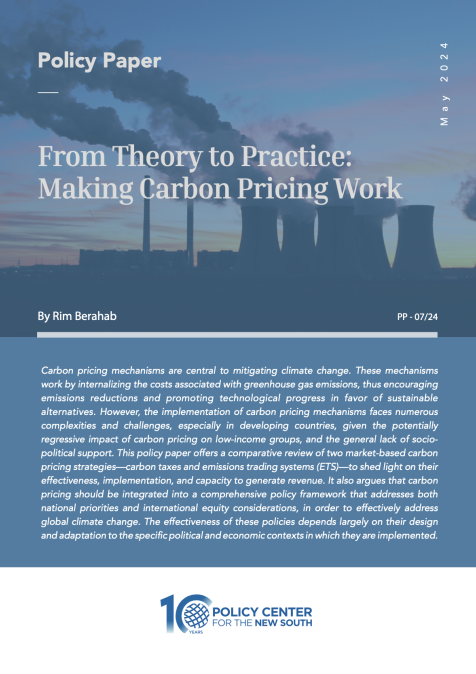Publications /
Policy Paper
Carbon pricing mechanisms are central to mitigating climate change. These mechanisms work by internalizing the costs associated with greenhouse gas emissions, thus encouraging emissions reductions and promoting technological progress in favor of sustainable alternatives. However, the implementation of carbon pricing mechanisms faces numerous complexities and challenges, especially in developing countries, given the potentially regressive impact of carbon pricing on low-income groups, and the general lack of socio- political support. This policy paper offers a comparative review of two market-based carbon pricing strategies—carbon taxes and emissions trading systems (ETS)—to shed light on their effectiveness, implementation, and capacity to generate revenue. It also argues that carbon pricing should be integrated into a comprehensive policy framework that addresses both national priorities and international equity considerations, in order to effectively address global climate change. The effectiveness of these policies depends largely on their design and adaptation to the specific political and economic contexts in which they are implemented.











